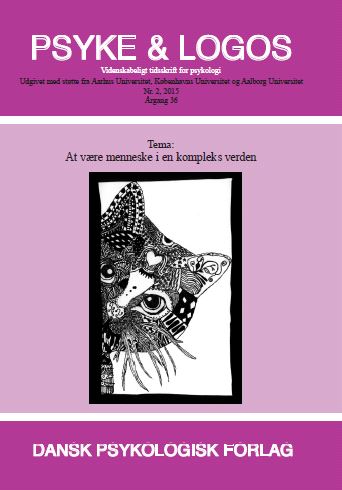Illusioner om fri vilje
DOI:
https://doi.org/10.7146/pl.v36i2.23402Resumé
Philosophical and folk concepts of free will take it for granted that conscious processes such as decisions and intentions can cause behaviour. Neuroscientific experiments by Libet and others have been claimed to indicate that this assumption might be wrong, and free will is
therefore an illusion. Analysis of the experiments reveal however, that they do not provide evidence that conscious decisions and intentions are causally ineffective. The decisions that subjects are to make in these experiments pertain to freedom of indifference, i.e. there is no
reason to prefer one decision in favour of the other. The experiment results are therefore inconsequential concerning the question of free will. In contrast, the conscious decision and intention to comply with the experimental instructions is meaningful from the participant’s
point of view and these decisions and intentions seem to be causally effective. The “unconscious” character of decisions in the experimental situation is a fulfilment of experimental instructions. The experiments by Libet and others do not prove free will to be an illusion. Analysis of the experiments indicate, that the possibility of free will is not to be sought in isolated motor neurons in the brain during the final hundreds of milliseconds before a movement, but during the years, months, weeks and minutes preceding the movement. This is forgotten, when free voluntary actions are reduced to meaningless spontaneous movements.
This is problematic, when sensationalistic press eagerly reports the allegation that free will is impossible, and that humans therefore cannot be held accountable for their deeds.
Downloads
Publiceret
Citation/Eksport
Nummer
Sektion
Licens
Ophavsret er tidsskriftets og forfatternes. Det er gældende praksis, at artikler publiceret i Psyke & Logos, som efterfølgende oversættes til andet sprog, af forfatteren frit kan publiceres i internationale tidsskrifter, dog således at det ved reference fremgår, at den oversatte artikel har et forlæg i en dansksproget version i Psyke & Logos. Artikler kan frit deles og linkes til på forsknings- og undervisningsnetværk (så som Blackboard). Link foretrækkes, fordi det giver oplysning om brug af tidsskriftets artikler.




